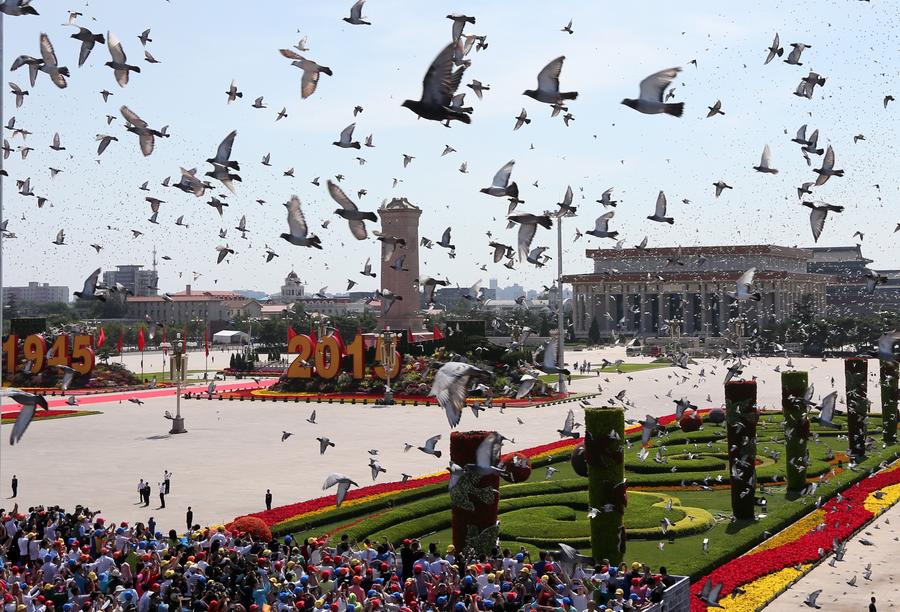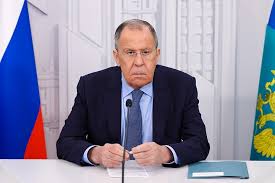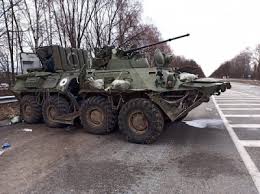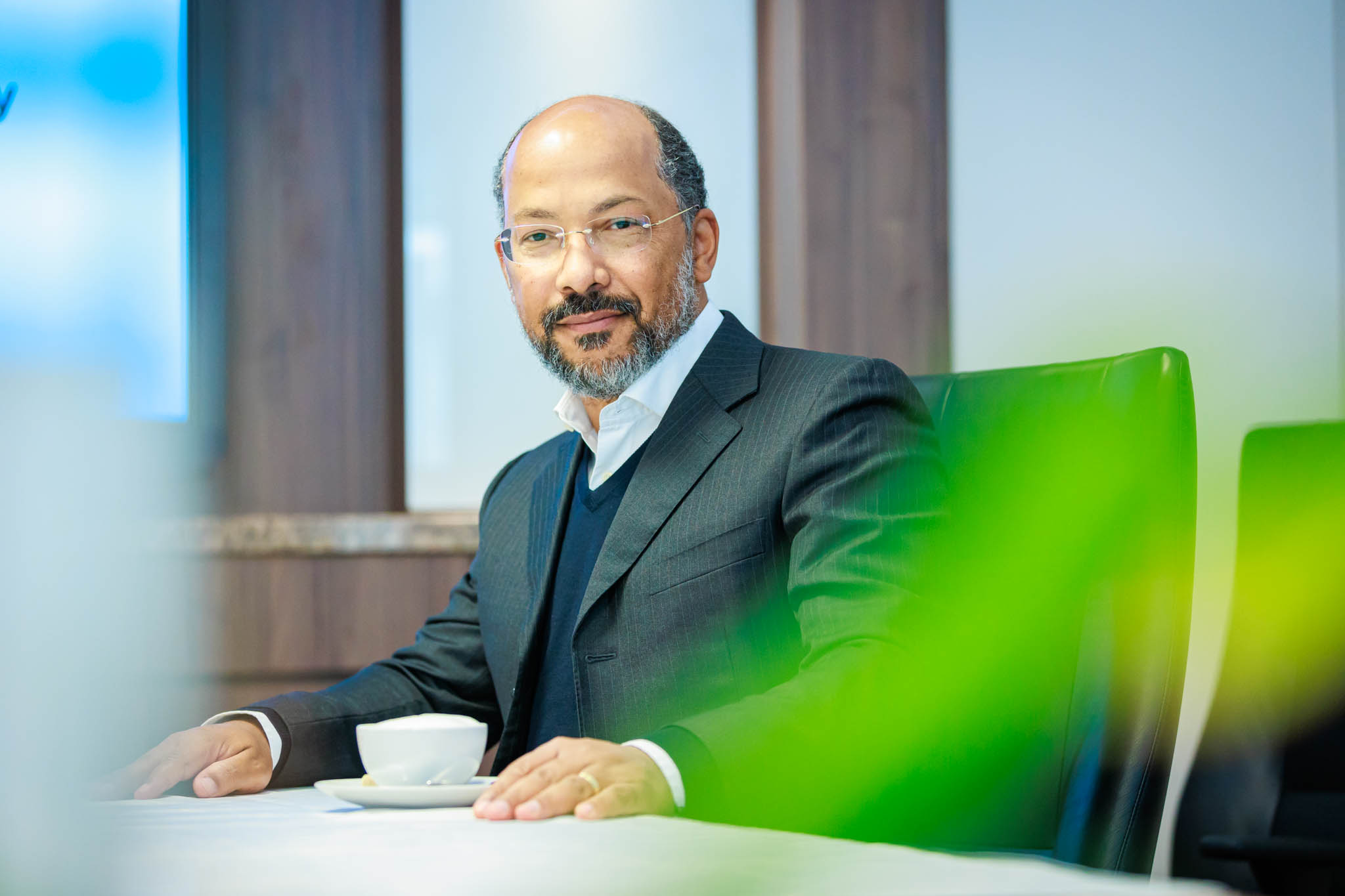Eighty years ago, the victory of the World Anti-Fascist War marked a turning point in human history, opening a new chapter in building a better international order and pursuing lasting peace.
Today, the world has undergone dramatic transformations. Technology has connected distant corners of the globe, and globalization has brought nations closer than ever before. Yet, alongside these advances, new and complex challenges have emerged. Global uncertainty is rising, marked by power politics, unilateralism and division in ever-evolving forms.
As the world reflects on the lessons of history, humanity must confront some urgent questions: How can we safeguard the hard-won peace? How can we collectively address pressing global challenges? And most importantly, how can we forge a shared future for all?
As noted by Chinese President Xi Jinping at the general debate of the 70th session of the United Nations General Assembly back in 2015, history is a mirror, and only by drawing lessons from history can the world avoid repeating past calamities.
“We should view history with awe and human conscience. The past cannot be changed, but the future can be shaped. Bearing history in mind is not to perpetuate hatred. Rather, it is for mankind not to forget its lesson. Remembering history does not mean being obsessed with the past. Rather, in doing so, we aim to create a better future and pass the torch of peace from generation to generation,” Xi said then.
VICTORY OF THE JUST
On the night of May 8, 1945, Germany signed the surrender document in Karlshorst, Berlin, marking the end of World War II (WWII) in Europe. Meanwhile in Asia, China’s final major campaign against Japan — the Battle of Western Hunan — reached its decisive phase.
Japan’s surrender aboard the USS Missouri in Tokyo Bay on Sept. 2, 1945, concluded WWII, humanity’s deadliest conflict. More than 80 countries and regions, involving roughly 2 billion people, were drawn into the war, with the total casualties at over 100 million and economic losses exceeding 4 trillion U.S. dollars. Against fascist aggression, more than 50 countries, including China and the Soviet Union, formed a united front.
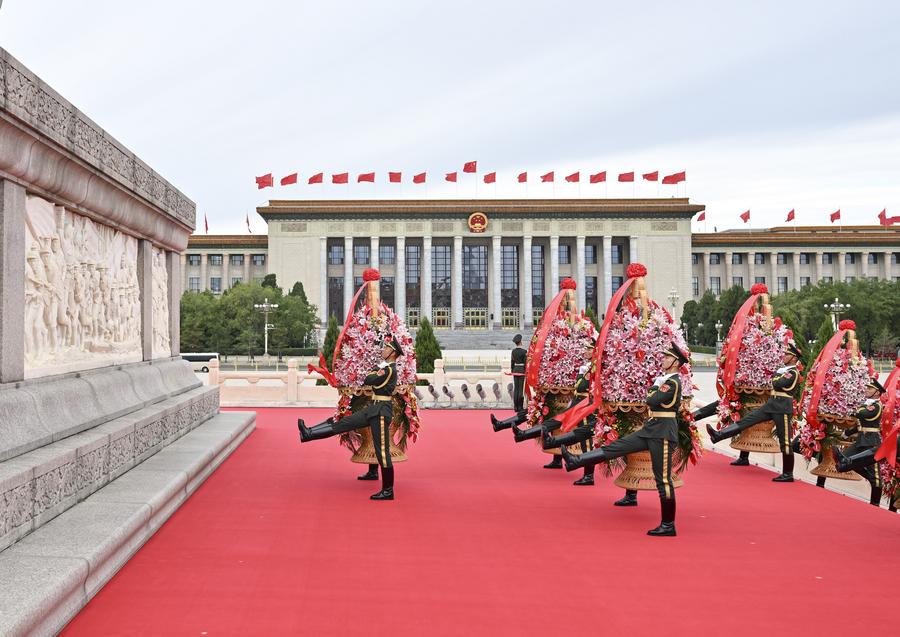
The world will never forget that as the main theater in the East of the World Anti-Fascist War, China made a national sacrifice of over 35 million casualties in its fight against the majority troops of Japanese militarism. During 14 years of fierce anti-fascist fighting, China engaged and tied down over two-thirds of the Japanese Army, inflicting 70 percent of Japan’s wartime military casualties. These efforts significantly contributed to the victory of the World Anti-Fascist War.
People from different countries stood with China in the common struggle. China will always remember the international support it received. For example, the U.S. “Flying Tigers” opened up the Hump Route for transporting emergency supplies; foreign doctors such as Norman Bethune from Canada and Dwarkanath Kotnis from India risked their lives to save others; German businessman John Rabe helped protect civilians during the Nanjing Massacre in 1937.
Equally significant was the Soviet Union’s sacrifice and contribution on the European theater of World War II. From the Battle of Moscow to the Battle of Stalingrad and the Battle of Kursk, the Soviet people bore tremendous hardship and played a decisive role in defeating Nazi troops.
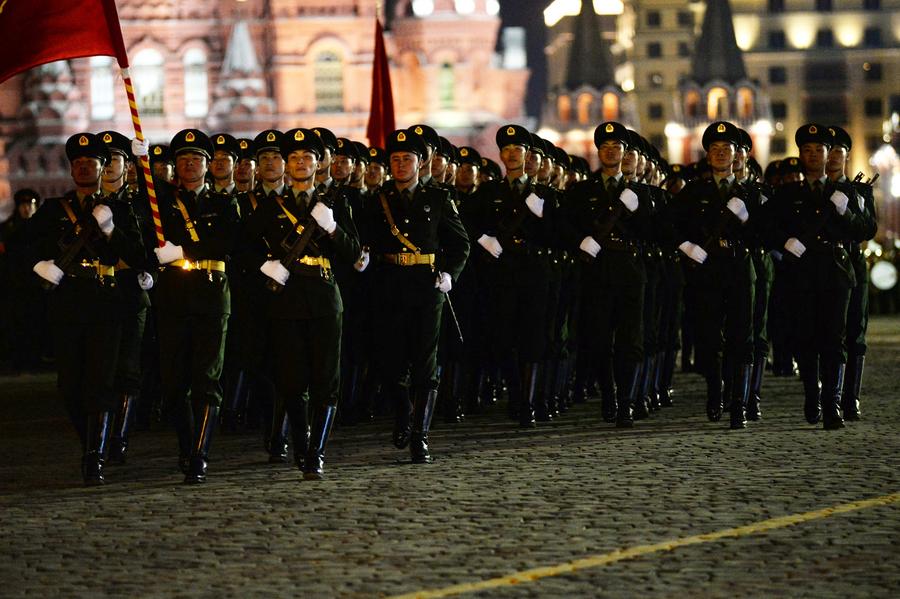
During the global anti-fascist war, China and the Soviet Union supported each other. Soviet air force volunteers fought alongside Chinese soldiers, during which over 200 of them lost their lives in China. Many Chinese, including Mao Anying, late Chinese leader Mao Zedong’s eldest son, engaged in fighting against Nazi troops during the toughest time of the Soviet Union’s Great Patriotic War. This shared sacrifice forged a deep bond between the two sides.
The victory of the anti-fascist war shattered attempts of the fascists and militarists to dominate the world, ended the colonial divisions of the world by imperial powers, and laid the foundation for a new vision of global peace and cooperation.
REBIRTH OF THE WORLD
This year also marks the 80th founding anniversary of the United Nations. The opening words of the UN Charter — “We the peoples of the United Nations determined to save succeeding generations from the scourge of war, which twice in our lifetime has brought untold sorrow to mankind” — stand as a powerful testament to the hard-won lessons of two catastrophic world wars.
More than just a historical reflection, these words convey humanity’s ardent desire for lasting peace.
Born from the ashes of World War II, the United Nations represents humanity’s efforts to move away from a world governed by the law of the jungle and a world order of Western-dominated hierarchies.
From the Westphalian and Vienna systems to the Versailles-Washington system, the old order divided the world into dominant powers, and nations they colonized and oppressed.
In a historic shift, the UN Charter enshrines the principle of sovereign equality, affirming for the first time in international law that all nations, irrespective of size, strength or wealth, are equal. That became the cornerstone for the postwar international order.
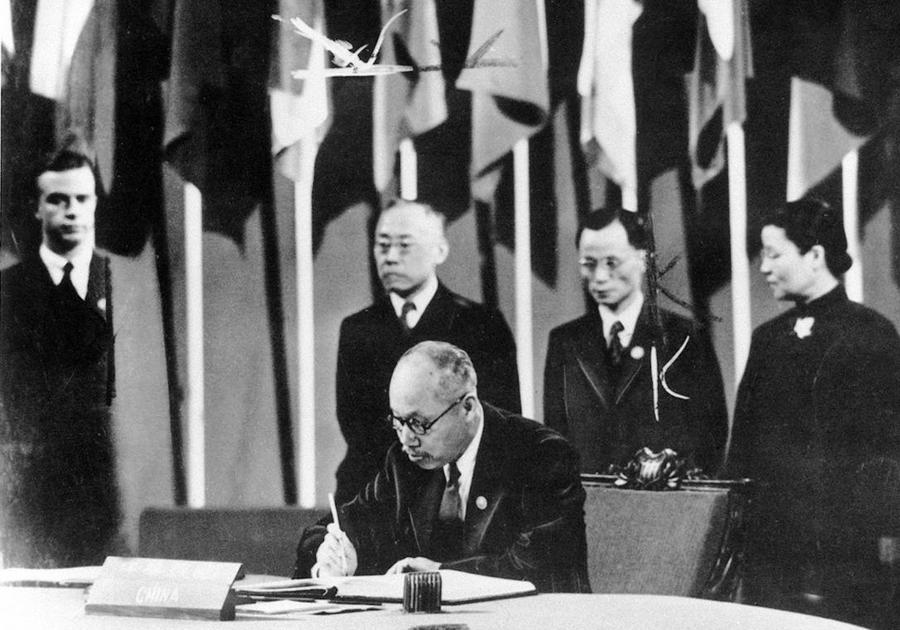
The restoration of the People’s Republic of China’s sole lawful rights by the 26th UN General Assembly was a major breakthrough in China’s diplomacy. As a founding member of the UN and one of the five permanent members of the UN Security Council, China has played an important role during its process. Later this month, Chinese President Xi Jinping will deliver a speech on the world stage during his visit to the UN. (Xinhua) (mp)
Anchored in the UN Charter, principles such as sovereign equality, non-interference in other’s internal affairs, peaceful settlement of disputes and prohibition of the use or threat of force have evolved into bedrock norms of international relations. The UN system’s creation has established not merely institutional platforms for cooperation, but transformed the very architecture of global governance.
Under the guidance of the spirit of the UN Charter, national liberation movements swept across the globe. Many countries in Asia, Africa and Latin America cast off the shackles of colonialism and gained national independence and sovereignty.
International law thus began to genuinely safeguard the rights and interests of developing countries. A more open and inclusive international community has replaced the West-centric paradigm of an exclusive “civilized nations club,” a solid and far-reaching step toward lasting peace for humanity.
China has actively participated in founding the United Nations and shaping the postwar international order. On June 26, 1945, China was the first country to sign the UN Charter. Before that, the Chinese delegation strongly defended the interests of small- and medium-sized countries, and insisted that “independence” be enshrined in the UN Charter as the goal of the International Trusteeship System despite pressure from the West. Such efforts exemplified China’s unwavering commitment to defending international fairness and justice.
The postwar international order has consolidated the victory of the World Anti-Fascist War, established the fundamental norms of modern international relations, curtailed military expansionism, and advanced global peace and development.
Since its inception 80 years ago, the United Nations has grown into the most universal, representative and authoritative intergovernmental organization in the world, carrying humanity’s shared aspirations for a better future.
CALL OF THE ERA
Over the past 80 years, the absence of global-scale wars has allowed the world to enjoy sustained peace. Emerging economies, including China, have risen collectively, while economic globalization has deepened, turning the world into an interconnected “global village” through expanding cross-border exchanges and cooperation.
At the same time, a new wave of technological and industrial transformation is reshaping economies, societies and international relations. The benefits of this largely peaceful era have created a level of global prosperity unprecedented in human history.
However, beneath the surface of peace flow some turbulent undercurrents. Unilateralism and protectionism are on the rise, with some politicians in the West obsessed with dividing the world along ideological lines, forming exclusive blocs and fueling a “new Cold War” mentality.
Even more, the United States openly disregards international norms, engages in economic coercion, imposes punitive tariffs and elevates domestic law above international law.
Such hegemonic behavior undermines the UN-centered international system, challenges the international order underpinned by international law, and threatens the very foundation of global peace and development.
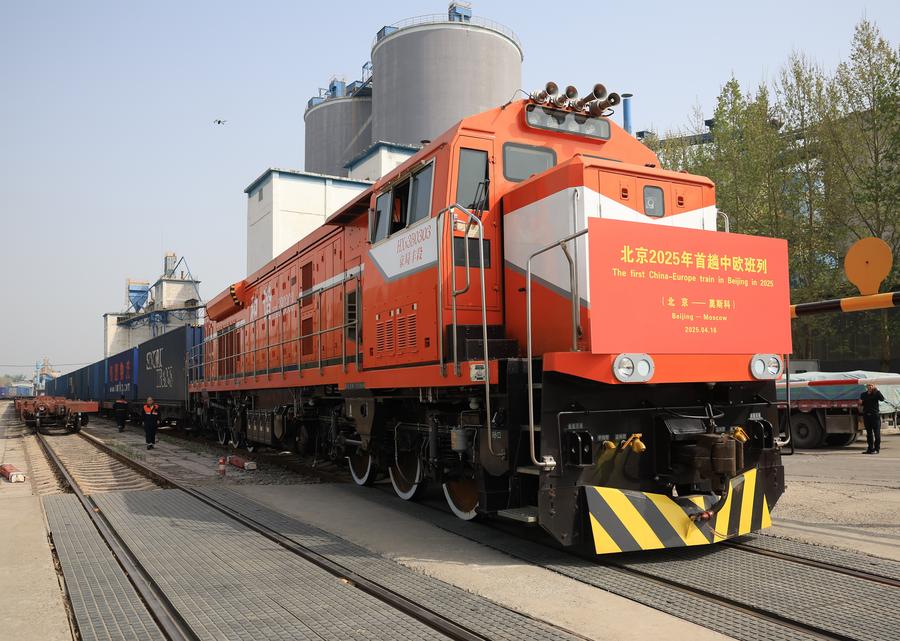
As UN Secretary-General Antonio Guterres has warned, “Everywhere we look, peace is under attack.”
The world is once again at a crossroads. Should the world uphold multilateralism and seek common ground, or allow unilateralism to grow unchecked? Should the world support more democratic international relations, or accept that power politics rules everything? Should the world follow international law and basic diplomatic norms, or return to a world where the strong dominate the weak?
History offers the clearest lessons. Firstly, peace must be defended. The terror of Nazi tyranny and the atrocities in Nanjing Massacre showed that war destroys civilization, while peace allows it to grow.
Secondly, unity is essential for the survival of human civilization. When fascism and militarism were tearing the world apart, the signing of the Declaration by United Nations by 26 nations in 1942 showed that ideological divisions can be overcome, and shared human values can bind nations together.
Thirdly, the tide of history cannot be reversed or resisted. The fall of colonialism, the end of the Cold War and the rise of developing countries all show that the logic of “might makes right” does not last. A multipolar world is the way forward.
Fourthly, rules are not tools for the powerful to abuse. Instead, they are the foundation of fairness and justice. The principles in the UN Charter, including sovereign equality and bans on aggression, remind humanity that without rules, the world risks sliding into chaos.
As a victor in World War II as well as a founder and defender of the post-war order, China has consistently stood on the right side of history and on the side of civilization and human progress.
From advancing high-quality Belt and Road cooperation to launching the Global Development Initiative, the Global Security Initiative and the Global Civilization Initiative, and from promoting a community with a shared future for mankind to offering ideas and solutions for global and regional challenges, China supports true multilateralism through concrete actions. It is working to make global governance fairer and more balanced, while contributing stability and positive momentum to world peace and development.
The majority of the world has come to recognize China as a pivotal force in safeguarding world peace and stability. As noted by UN Under-Secretary-General for Humanitarian Affairs and Emergency Relief Coordinator Tom Fletcher, initiatives China proposed around peace and security, global development and cultural cooperation closely align with the UN’s core mission of peacemaking, humanitarian efforts and global security.
The concept of “a community with a shared future for mankind” is another key idea that highlights global solidarity and “the world coming together, not pulling apart,” Fletcher told Xinhua, adding that such a concept has created “partnerships that we really need if we’re to meet the challenges ahead of us, including climate change.”
As partners who fought side by side in World War II, China and Russia continue to work together today to uphold global strategic stability. They coordinate closely within multilateral frameworks such as the United Nations, the Shanghai Cooperation Organization and BRICS, jointly opposing hegemonism and power politics, and promoting a more multipolar world and economic globalization through true multilateralism.
Meanwhile, emerging markets and developing countries are rising as a collective force. The awakened Global South is gaining strength, confidence and a greater voice in global governance. The forces for peace and development have never been more robust.
French writer Victor Hugo once observed: “Memories are our strength. When night attempts to return, we must light up the great dates, as we would light torches.” The significance of marking the 80th anniversary of the victory of the World Anti-Fascist War lies in illuminating the path ahead, and reaffirming humanity’s unwavering commitment to enduring peace.
At this new crossroads in history, what humanity needs is not the drumbeat of a new Cold War, but the call for cooperation; not claims of civilizational superiority, but a spirit of shared prosperity; not a return to the law of the jungle, but a renewed commitment to a shared future.
Only by following this path can the world prevent the tragedies of history from repeating themselves and turn the vision of lasting peace and sustainable development into reality. Enditem
Source: Xinhua
Share Us
